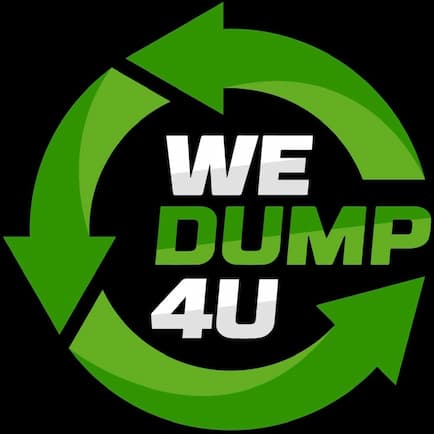As conversations about climate change, pollution, and responsible living continue to grow in the UK, many homeowners and businesses are re-evaluating how they manage their waste. One question that frequently arises is: Are waste removal services good for the environment? The answer is more complex than a simple yes or no. However, with the growing emphasis on sustainable waste removal, the waste management industry is playing a crucial role in supporting a greener future.
In this in-depth guide, we will explore how modern waste removal services contribute to environmental sustainability, the challenges they face, and why choosing a responsible provider is essential for reducing our environmental impact.
What Is Sustainable Waste Removal?
Sustainable waste removal refers to the collection, processing, and disposal of waste in a way that minimises environmental harm, maximises resource recovery, and aligns with long-term ecological goals. It’s not just about removing rubbish—it’s about ensuring the process contributes to a circular economy, reduces greenhouse gas emissions, and avoids unnecessary landfill use.
Key principles of sustainable waste removal include:
- Recycling and reusing materials wherever possible
- Reducing waste generation at the source
- Properly disposing of hazardous materials
- Using low-emission transport and fuel-efficient waste collection vehicles
- Partnering with eco-conscious disposal facilities
How Waste Removal Services Support Environmental Goals
1. Reduction in Landfill Waste
One of the most direct ways in which waste removal services benefit the environment is by reducing the amount of waste sent to landfill. Modern waste companies often partner with licensed recycling facilities and materials recovery centres to sort waste and extract valuable materials like plastic, glass, paper, and metal.
In the UK, landfill usage is taxed under the Landfill Tax Act 1996, which provides both a financial and environmental incentive to divert waste. This legislation encourages waste removal services to innovate and embrace more sustainable methods.
2. Enhanced Recycling Rates
Many professional waste removal services offer dedicated recycling services, helping clients sort and segregate recyclable materials from general waste. When done correctly, this improves the UK’s national recycling rates and contributes to reducing the extraction of virgin resources.
By engaging in sustainable waste removal, providers help reduce energy consumption and carbon emissions associated with manufacturing from raw materials.
3. Lower Carbon Footprint Through Efficient Logistics
Skip hire companies and waste removal businesses now use route-optimised software and energy-efficient vehicles to reduce emissions. Some providers in the UK are transitioning to electric or hybrid fleets, significantly decreasing their carbon footprint.
In contrast, DIY waste removal methods—like repeated trips to the tip in a personal vehicle—can result in increased emissions and more fuel use.
4. Safe Disposal of Hazardous Waste
Households and businesses generate various types of hazardous waste, such as paint, batteries, old appliances, and cleaning chemicals. These can severely impact soil and water quality if disposed of improperly.
Professional services ensure hazardous items are processed at licensed facilities that neutralise environmental risks. Responsible providers are well-versed in UK regulations such as The Hazardous Waste Regulations 2005, and this legal compliance supports the broader aims of sustainable waste management.
The Environmental Risks of Poor Waste Management
While professional services offer sustainable solutions, the opposite is also true: irresponsible waste removal—such as fly-tipping or illegal dumping—has devastating effects on the environment.
Consequences include:
- Soil and water contamination
- Air pollution from open burning
- Damage to ecosystems and wildlife
- Increased greenhouse gas emissions
This is why choosing a certified, ethical, and eco-conscious waste removal provider is critical.
What Makes a Waste Removal Service Sustainable?
Not all providers are created equal. To ensure that your waste removal choices benefit the environment, look for companies that demonstrate the following sustainable practices:
1. Commitment to Recycling and Diversion from Landfill
Check whether the company has a clear recycling policy and partnerships with certified recycling centres. High diversion rates (over 90%) from landfill are a good indicator of sustainability.
2. Transparent Waste Audits and Reporting
Reputable services will provide waste audit data, showing where your waste ends up. Transparency is a cornerstone of sustainable waste removal.
3. Eco-Friendly Fleet and Technology Use
Using electric vehicles, route planning software, and digital customer communications all reduce environmental impact.
4. Compliance with UK Environmental Laws
Ensure the company is registered with the Environment Agency, has waste carrier licenses, and follows all legal disposal practices.
5. Education and Community Engagement
Some of the best sustainable waste removal providers actively engage in community education programmes about recycling and waste reduction.
Household Waste and Sustainability
Many households wonder if their small-scale waste contributes significantly to environmental harm. The answer is a resounding yes—household waste in the UK accounts for a large portion of total waste generation.
Sustainable waste removal services help households:
- Sort and recycle more effectively
- Dispose of old furniture and appliances responsibly
- Clear out garden and renovation waste without harming the environment
- Avoid fly-tipping and illegal dumping
By opting for eco-conscious services, homeowners reduce their personal carbon footprint and contribute to a national culture of sustainability.
The Role of Commercial Waste Removal in Sustainability
Businesses in the UK are under increasing pressure to demonstrate their environmental responsibility. Whether it’s retail waste, office clearances, or construction debris, sustainable waste removal plays a pivotal role.
Benefits for businesses include:
- Supporting ESG (Environmental, Social, and Governance) goals
- Meeting compliance for ISO 14001 environmental management
- Enhancing brand reputation through green practices
- Reducing operational costs through efficient waste management
Commercial waste removal companies often tailor their services to align with sustainable targets and help clients measure their environmental performance.
Challenges in Achieving Fully Sustainable Waste Removal
While there are many benefits, achieving completely sustainable waste removal is not without obstacles:
- Contaminated recycling: Improper sorting can result in recyclable materials being rejected.
- Limited infrastructure: Not all UK regions have equal access to advanced recycling and processing facilities.
- Consumer awareness: Public understanding of what is and isn’t recyclable remains a challenge.
- Illegal operators: Unlicensed waste carriers can undermine legitimate efforts through irresponsible disposal.
How You Can Support Sustainable Waste Removal
As a consumer or business owner, you can help foster more sustainable waste practices by:
- Always using licensed waste removal companies
- Segregating waste before disposal
- Avoiding single-use plastics and reducing waste generation at the source
- Donating usable items instead of binning them
- Educating your household or staff about proper recycling
Even small changes—like using a professional skip hire instead of making multiple car trips to the tip—can contribute to a more eco-friendly outcome.
A Greener Future with Sustainable Waste Removal
So, are waste removal services good for the environment? When done properly and with sustainability at the core, the answer is a resounding yes. Sustainable waste removal not only diverts waste from landfills but also promotes recycling, reduces carbon emissions, and ensures the responsible disposal of hazardous materials.
By choosing reputable and environmentally-conscious waste removal services, households and businesses in the UK can play a vital role in protecting the planet. The future of waste management lies in circular practices, education, and commitment to reducing environmental impact at every level.
Whether you’re planning a home clearance, garden renovation, or commercial project, always prioritise sustainable waste removal—it’s one of the most impactful decisions you can make for the environment.


